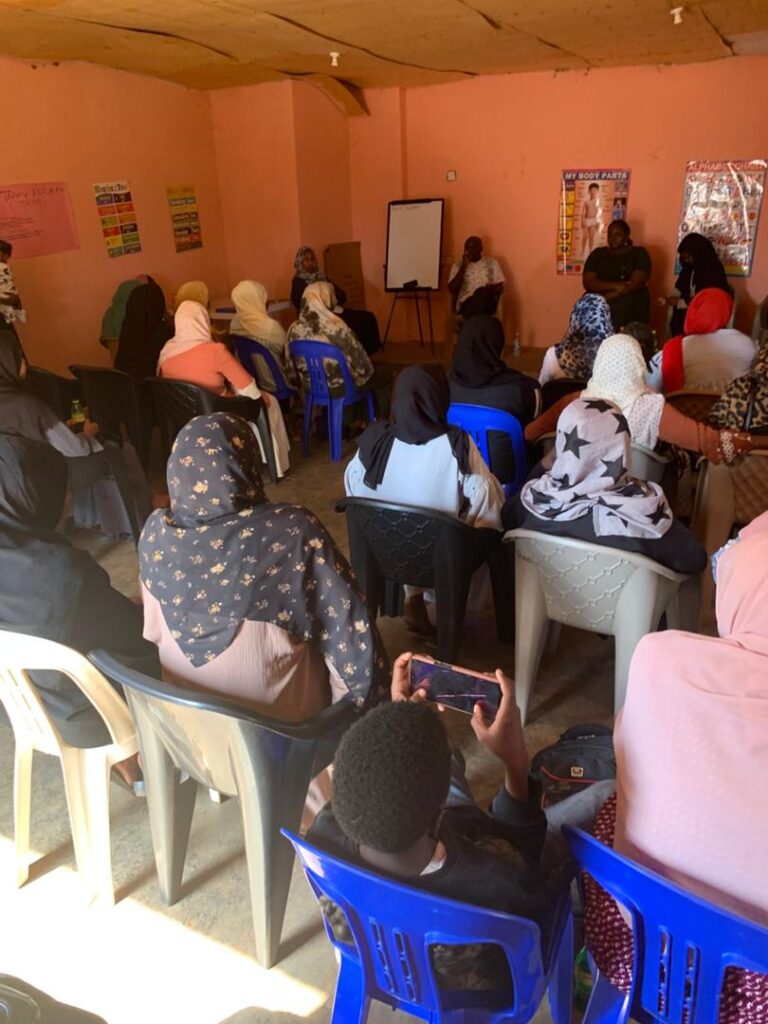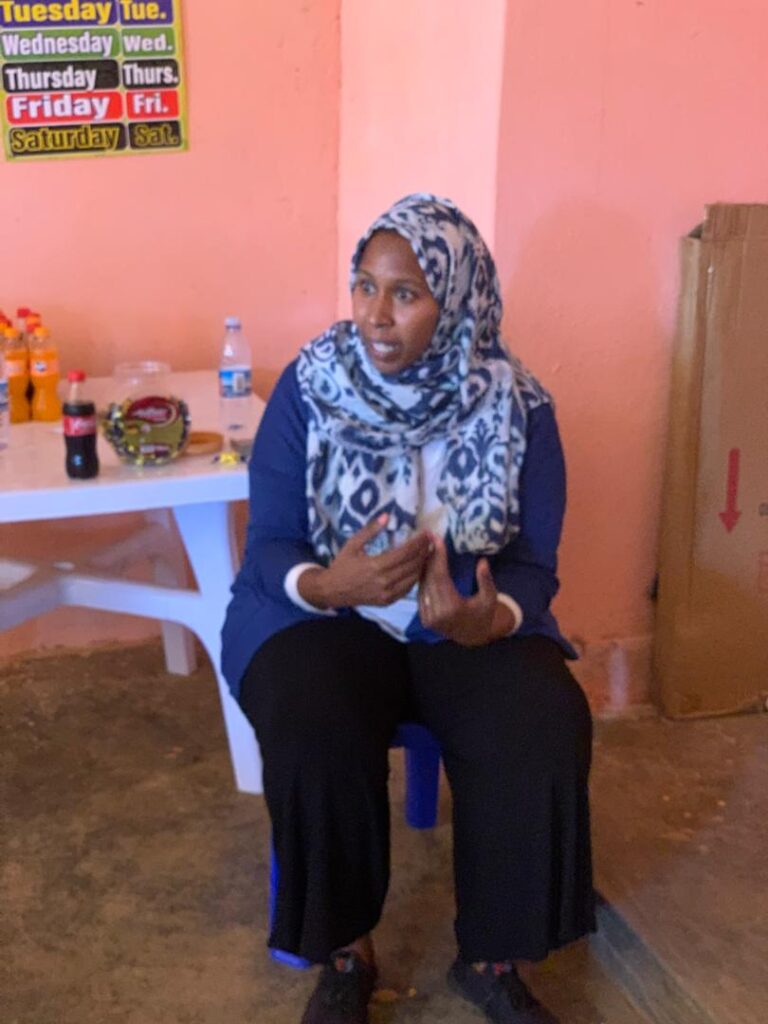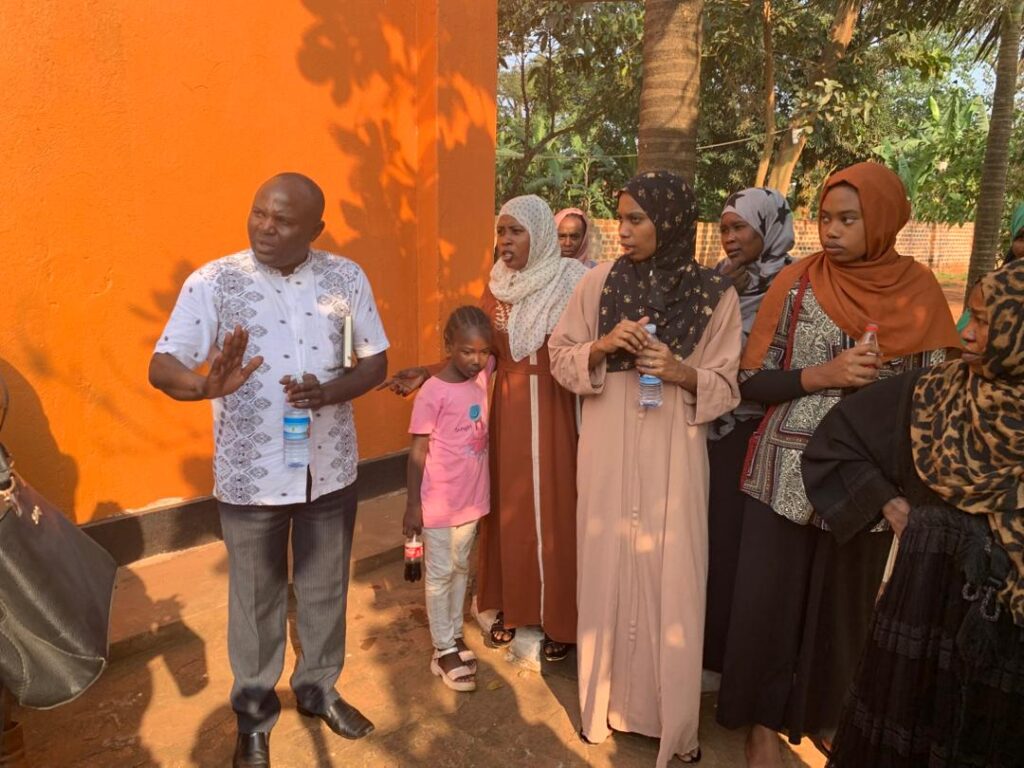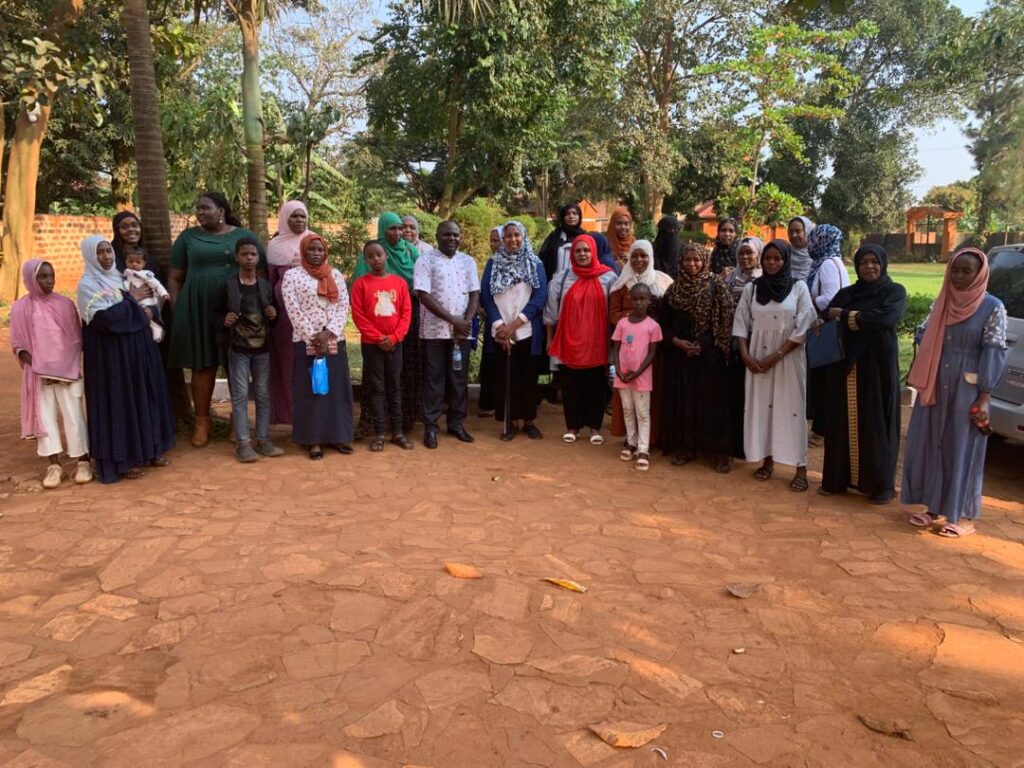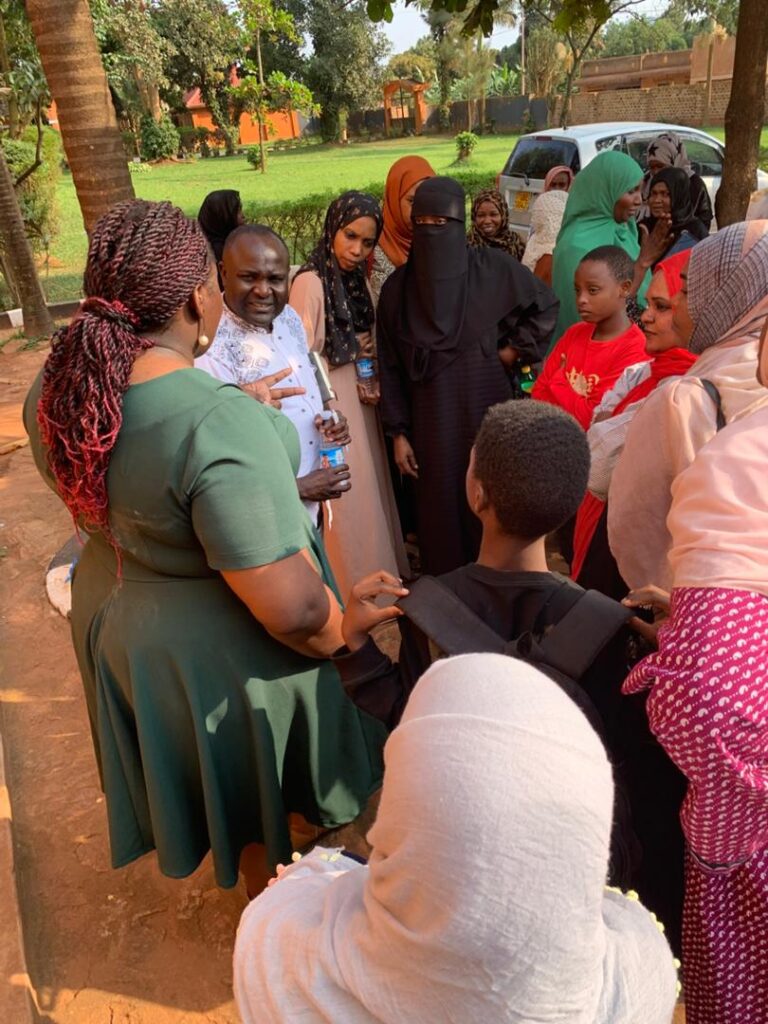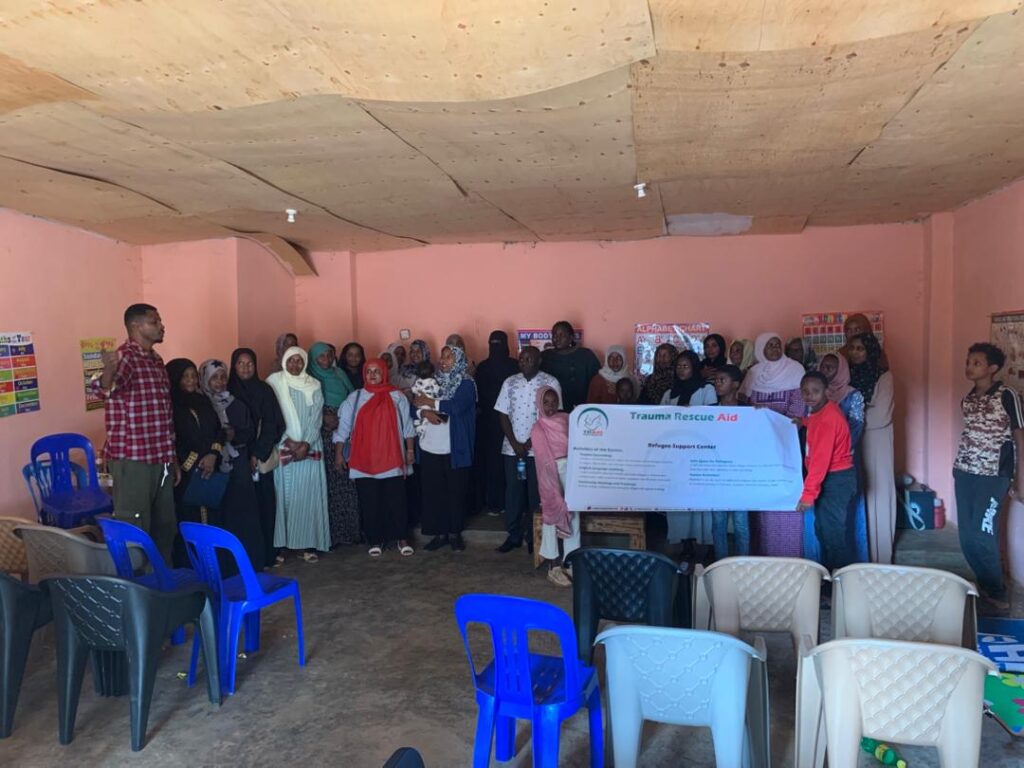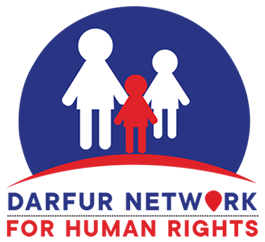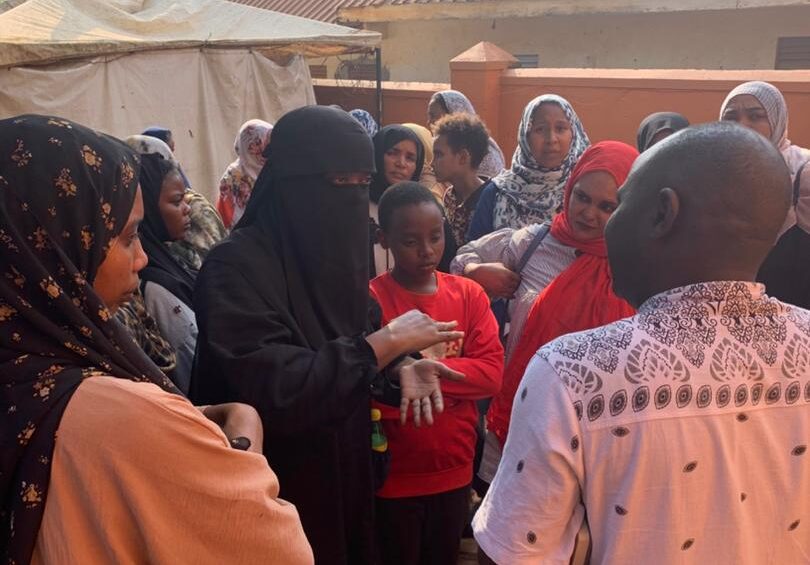On January 21, 2025, we, the staff of the Darfur Network for Human Rights (DNHR), visited TRAID (Trauma Rescue Aid) in Mukono, Uganda. TRAID is a centre where the Sudanese refugee women living in Seeta meet to learn English, hoping to adapt to life in a foreign land.
The hall where they gather has little natural light, no electricity, and few resources. There are chairs for seating but no tables to make learning more comfortable. The English instructor, a refugee herself, uses a small whiteboard and a handful of charts to teach. Despite these limitations, the women come together almost each and every day.
The stories they shared reflected both their strength and the harsh reality of their current situation. Many fled Sudan after witnessing unspeakable violence, including the killings of loved ones and the destruction of their homes. Now, as refugees, they face a different kind of struggle.
One woman explained how she cannot afford asthma medication, leaving her health in jeopardy. Many spoke about the pain of being unable to send their children to school because education in Uganda is too expensive. For most of these women, unemployment is the root of their challenges. They have skills but are held back by language barriers and a lack of opportunities to apply them.
Amid these struggles, TRAID has become a lifeline for these women. A place for them to meet and share their struggles amongst one another.
TRAID was founded in 2023 by Sudanese refugees who managed to find jobs in Uganda. These individuals, with limited means of their own, contribute portions of their small earnings to keep the centre running. Their funding pays for the rent, basic teaching materials, and a small stipend for the instructor.
However, the centre operates on a shoestring budget. It lacks the resources needed to fully support the women it serves. TRAID’s founders and the women who rely on the centre are doing everything they can, but they are at a disadvantage without additional help.
Many of the women have tried to start small businesses, pooling their resources to create opportunities. Yet, without access to markets, business training, or even the ability to communicate fluently in English, their efforts often fail.
The children of these women also face challenges. Many cannot attend school because their mothers cannot afford the fees. Others show signs of trauma from displacement, such as anxiety, emotional withdrawal, and difficulty adjusting to their new environment.
Call for Action:
DNHR, and TRAID underscores the urgent need for targeted interventions to address these challenges. Comprehensive strategies should focus on:
- Ensuring access to healthcare, education, and livelihood opportunities.
- Providing trauma-informed care for children and adults.
- Strengthening protection measures to safeguard victims from further harm.
These efforts are essential to uphold the rights and dignity of Sudanese women refuges and children who have been profoundly affected by the ongoing conflict.

